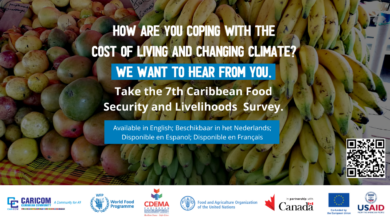WASHINGTON, Jan. 2, CMC – The Pan-American Health Organization (PAHO) says 2015 saw both progress and challenges in health in the Americas, including the Caribbean.
In its end of year report, PAHA said the Americas in April became the world’s first region to be declared free of endemic transmission of rubella, a contagious disease that can cause serious birth defects and even fetal death if contracted by women during pregnancy.
“The declaration made rubella and congenital rubella syndrome (CRS) the third and fourth diseases – after small pox and polio – to be eliminated in the Americas region,” PAHO said.
In June, PAHO noted that Cuba became the world’s first country to receive validation form the World Health Organization (WHO) that it had eliminated mother-to-child transmission of HIV and syphilis.
As a result of the elimination measures, in Cuba, during 2013, only two babies were born with HIV and only three with congenital syphilis, “reflecting transmission rates below the threshold for elimination,” PAHO said.
It said about 46 million additional people in the Americas have obtained health coverage in Latin America and the Caribbean since 2000, based on data from 10 countries.
However, 30 percent of the region’s population lacks access to health care for economic reasons, and 21 percent do not seek health services due to geographic barriers.
The report calls for greater efforts to reduce “persisting health inequities both between and within the region’s countries” and urges attention to changing health needs, especially the rise of non-communicable diseases, such as cancer, cardiovascular disease and diabetes.
PAHO said in 2015, Zika became the latest mosquito-born threat to arrive in the Americas.
Like dengue and chikungunya, it said Zika is transmitted by Aedes mosquitoes, which are present throughout the region, except in continental Chile and Canada. PAHO said by year-end, Zika had been reported in 11 countries in the region.
Concerning maternal deaths, the organisation said one in five maternal deaths in the Americas is caused by obstetric hemorrhage during or immediately following childbirth.
To prevent these deaths, PAHO said in 2015 it launched the “Zero maternal deaths from hemorrhage” initiative that promotes woman-centered prenatal care and delivery, as well as improved quality of care through training in the management of obstetric emergencies.
It also revealed that in 2014, the number of men who engage in heavy episodic drinking – the most harmful drinking pattern – nearly doubled in the Americas over a five-year period, while the rate among women nearly tripled in the same period.
As a result, PAHO, urged measures to reduce the availability of alcohol, restrict its marketing and promotion, and raise prices on alcohol through taxes.
On World Health Day 2015, on April 7, PAHO underscored the health threat of contaminated food and the need to keep food safe throughout the food chain, saying that, in the Americas, 77 million people suffer and episode of food borne illness each year, with nearly half of those affected are children under five.
Food contaminated by bacteria, viruses, parasites or toxic chemicals produce more than 200 diseases, from diarrhea to cancer, PAHO said.
Stating that whenever a hurricane, earthquake or flood occurs, the health sector is often affected, PAHO said its Smart Hospitals initiative helps countries in the region ensure that hospitals can continue to function during emergencies, while also trying to reduce their environmental impact.
In June, PAHO launched a second three-year phase of the initiative in a dozen hospitals in Dominica, Grenada, St. Lucia and St. Vincent and the Grenadines.
PAHO said it is working to strengthen the health sector in its member countries in Latin America and the Caribbean to advance the achievement of the United Nations Sustainable Development Goals (SDGs) by 2030.
The Washington-based organization is also urging the incorporation of health concerns into all public policies “to address the social determinants of health.”







